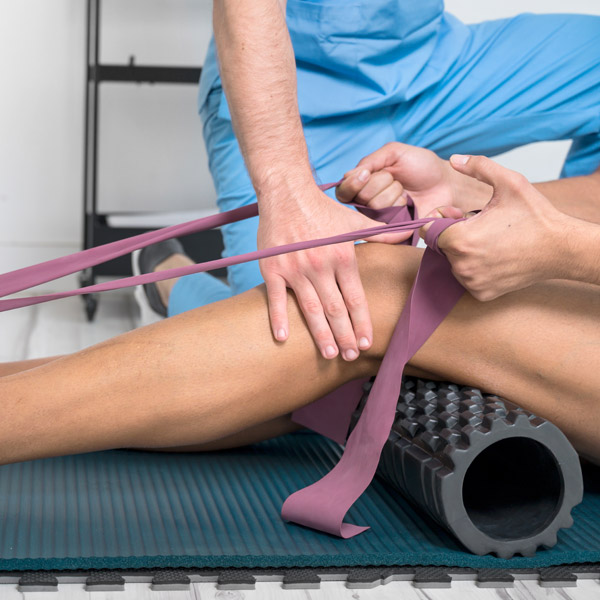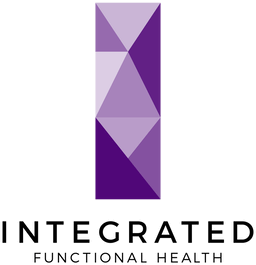WCB/ICBC
What Is the IFH ICBC Integrated Rehabilitation Approach?
Progressive Treatment Planning
The first step towards your rehabilitation starts before you even enter our clinic. You will be required to complete an extensive ICBC intake form that gives our practitioners a clear understanding about the accident details, present and past injuries, your pre accident activity level, quality of life, overall health, well-being, work history/ability and mental health.
After your treatment, your therapist will discuss how the treatment was for you, any concerns you may have, their findings and or clinical impression(s) and what an ideal continued treatment plan would like for you with timelines. A re-assessment will usually also be performed.
Integration of other therapies – As your treatments progress and reassessments take place, you will be instructed to begin other therapies with our healthcare team. This is extremely important so that your ailments are addressed from all angles ie. skeletal, muscular, neurological, emotional and physical. It is also important to note that if ICBC does not see the integration of other therapies into your rehabilitation journey they will often not support the continuation of care. The goal of the rehabilitative approach through ICBC is to move from passive (non active) care to active care where you are an active participant in the final restoration phases of your rehabilitation.
Extension requests – Approximately one week prior to the end date of your allotted treatments from ICBC, your therapist will discuss the option of requesting an extension for more treatments or opt for a discharge if further treatments are no longer indicated or should you not want to continue with care.
This process will repeat until you, your therapist and adjuster feel that treatments are no longer indicated or optimal recovery has been achieved.
1) During your first visit your therapist will thoroughly review the ICBC intake form and health history that you filled out prior to your appointment with you.
2) Next, based on your post accident symptoms your therapist will conduct an orthopedic assessment that will look at musculoskeletal function including range of motion, limitation(s), strengths and weaknesses, dysfunction(s) and pain. At this time if neurological testing is indicated it will also be completed. This initial assessment is an important tool that all therapists will perform during the initial visit. Re-assessments will be done periodically throughout your treatment plan as needed or if an extension request for treatments is coming up in the near future. Further to this, the assessments will be used by all members of your rehabilitation team to establish a base line, track your progress and to create a customized treatment plan that will best restore you to your pre accident function.
3) Finally, prior to starting treatment, your therapist will discuss and obtain consent for the proposed treatment plan, areas to be treated, any risks and benefits associated with the treatment and the re-assessment and extension procedure. In most cases you will receive some treatment during your first visit however, depending on the complexity of your case and injuries treatment time may be limited.
Load More

Common Motor Vehicle Accident Injuries & Pathologies
- Soft Tissue Injury – muscle strain and sprain
- Skeletal Injury – fracture, dislocation,
- Concussion / Vestibular
- Emotional – trauma, stress, anxiety & sleep disorders
- Chronic Headaches & Migraines
Active Treatment
- Kinesiology – Active rehabilitation
- Physiotherapy – exercise therapy
- Chiropractic – exercise therapy
Passive Treatment
- Massage
- Acupuncture
- Physio modalities ie) tens, ultrasound, shockwave, laser therapy and manual therapy
- Chiropractic – adjustments and or soft tissue release
What Is the IFH WORKSAFE BC Integrated Rehabilitation Approach?
If you have been injured at work and have filed a claim with Work Safe BC you should schedule your appointment with our WSBC Physiotherapist or Chiropractor. Once Integrated Functional Health receives approval from Work Safe BC you can begin rehabilitation treatment immediately.
Integrated Functional Health’s integrated rehabilitation approach is designed to help keep you safely at work. If you are currently off of work due to your injury our team will collaborate with you and your employer to help you safely transition back to work through modified work duties. Our ultimate goal however is to assist in returning you to your pre-injury function.
Progressive Treatment Planning
The first step towards your rehabilitation starts before you even enter our clinic. You will be required to complete an extensive WSBC intake form that gives our practitioners a clear understanding about the accident details, present and past injuries, your pre accident activity level, quality of life, overall health, well-being, work history/ability and mental health.
After your treatment, your therapist will discuss how the treatment was for you, any concerns you may have, their findings and or clinical impression(s) and what an ideal continued treatment plan would like for you with timelines. A re-assessment will usually also be performed.
Integration of other therapies – As your treatments progress and reassessments take place, you will be instructed to begin other therapies with our healthcare team. This is extremely important so that your ailments are addressed from all angles ie. skeletal, muscular, neurological, emotional and physical. It is also important to note that if WSBC does not see the integration of other therapies into your rehabilitation journey they will often not support the continuation of care. The goal of the rehabilitative approach through WSBC is to move from passive (non active) care to active care where you are an active participant in the final restoration phases of your rehabilitation.
Extension requests – Approximately one week prior to the end date of your allotted treatments from WSBC, your therapist will discuss the option of requesting an extension for more treatments or opt for a discharge if further treatments are no longer indicated or should you not want to continue with care.
This process will repeat until you, your therapist and adjuster feel that treatments are no longer indicated or optimal recovery has been achieved.
1) During your first visit your therapist will thoroughly review the WSBC intake form and health history that you filled out prior to your appointment with you.
2) Next, based on your post injury symptoms your therapist will conduct an orthopedic assessment that will look at musculoskeletal function including range of motion, limitation(s), strengths and weaknesses, dysfunction(s) and pain. At this time if neurological testing is indicated it will also be completed. This initial assessment is an important tool that your therapist will perform during the initial visit. Re-assessments will be done periodically throughout your treatment plan as needed or if an extension request for treatments is coming up in the near future. Further to this, the assessments will be used by all members of your rehabilitation team to establish a base line, track your progress and to create a customized treatment plan that will best restore you to your pre-injury function.
3) Finally, prior to starting treatment, your therapist will discuss and obtain consent for the proposed treatment plan, areas to be treated, any risks and benefits associated with the treatment and the re-assessment and extension procedure. In most cases you will receive some treatment during your first visit however, depending on the complexity of your case and injuries treatment time may be limited.
Load More

5 MOST COMMON WORK PLACE INJURIES
1) Sprains, Strains & Tears – resulting from twisting, stretching, overuse and overextension
2) Soreness and Pain – Chronic back pain is one of the most common complaints from workers who are required to sit in an office chair for hours a day
3) Cuts, Lacerations & Punctures
4) Concussions & broken bones – Traumatic accidents
5) Repetitive Stress Injuries – Bending, lifting, computer work, writing and typing
ICBC & WSBC Integrated Team

Chiropractor

Physiotherapist

Physiotherapist

Kinesiologist

Chiropractor
ICBC Only – Registered. Massage Therapy




ICBC Only – Registered Acupuncture

Acupuncturist

Acupuncturist
